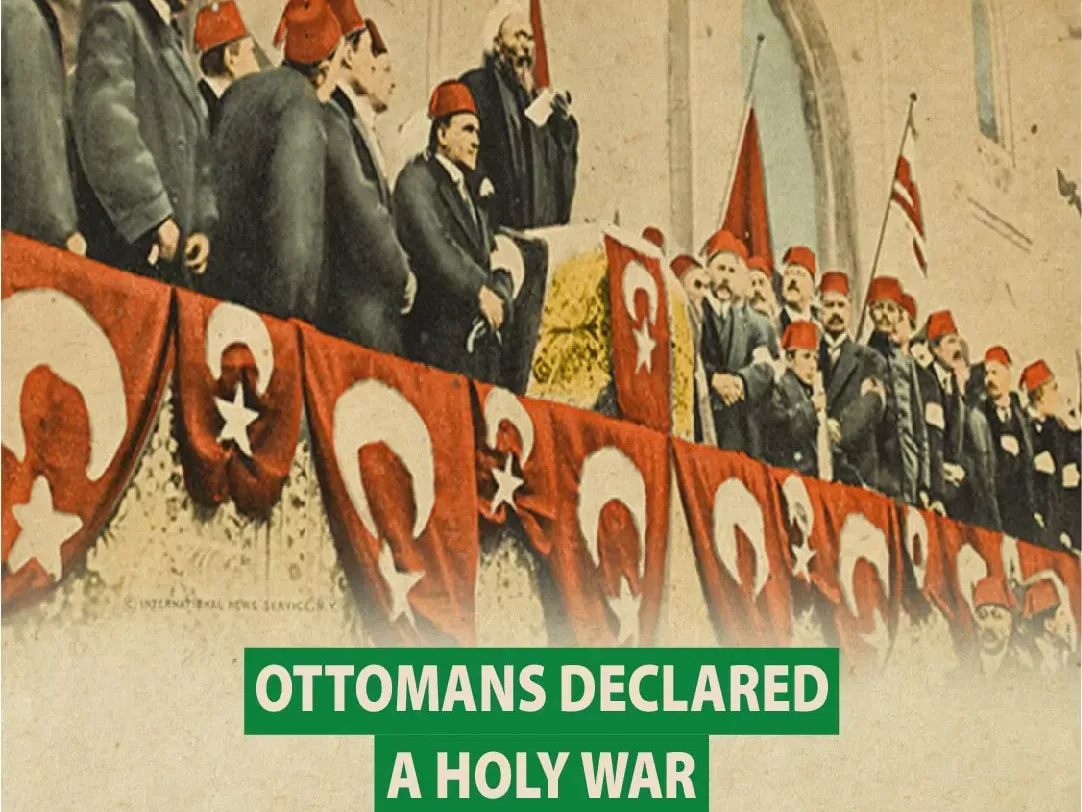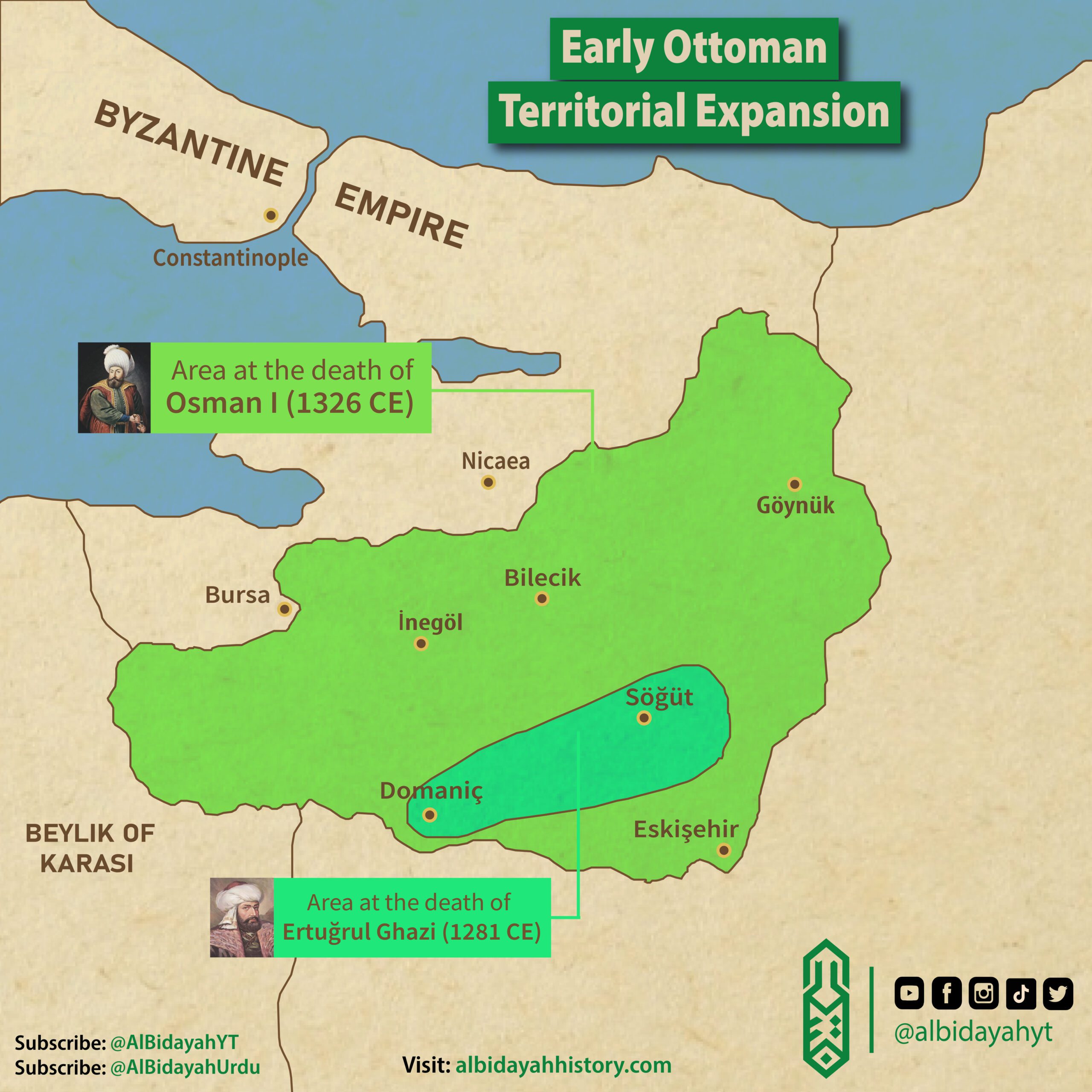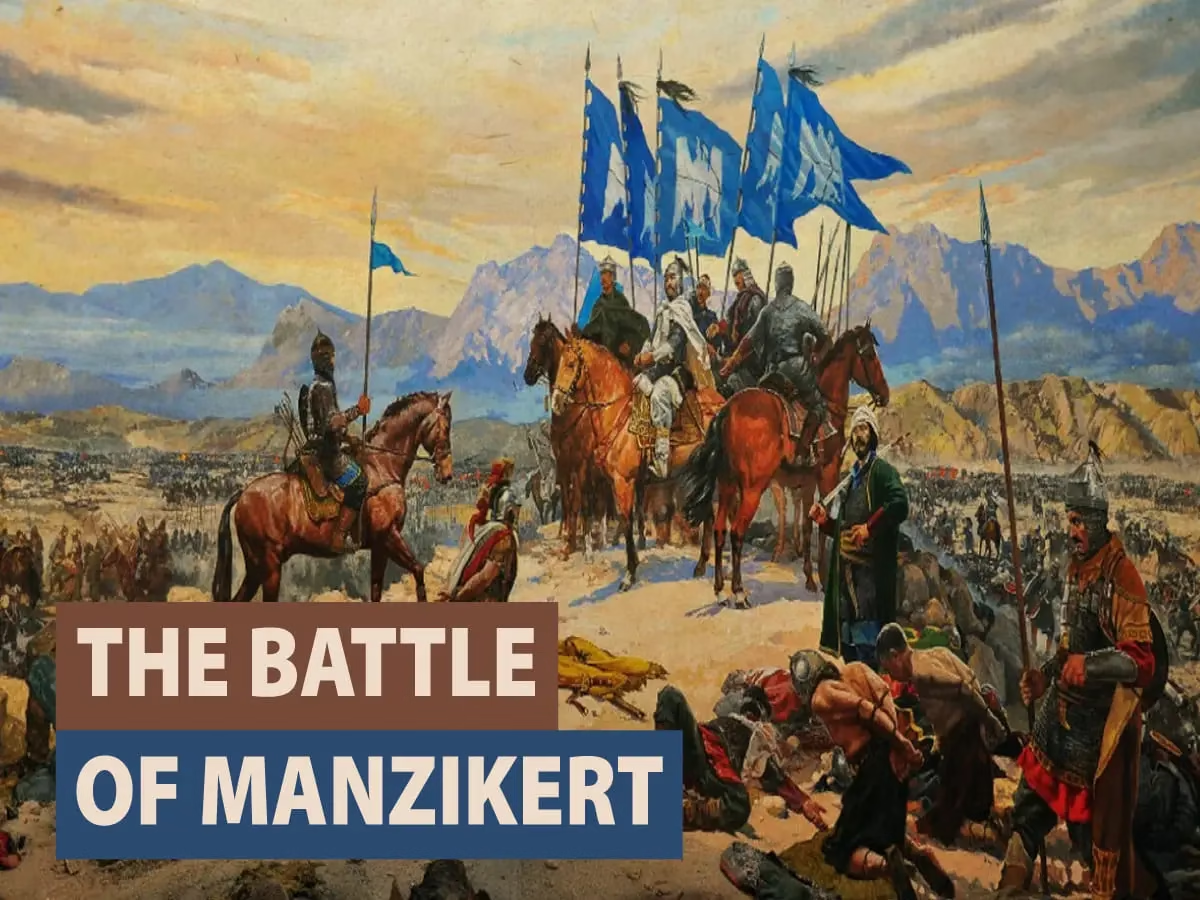On 14 November 1914 CE, the Ottoman religious leader Sheikh-ul-Islam declared an Islamic Holy War (Jihad) on behalf of the Ottoman government. The call urged all Muslims across the world to take up arms against Britain, France, Russia, Serbia, and Montenegro during World War I.

Background: Ottoman Losses and Alliance with Germany
In the First Balkan War (1912–1913), the Ottoman Empire lost nearly all of its remaining territories in Europe. Weak and struggling to survive, the Empire sought an alliance with a strong European power to safeguard itself from further decline.
Therefore, Sultan Mehmed V decided to join Germany and the Central Powers to fight against the Allied nations. The decision was heavily influenced by members of the Committee of Union and Progress (CUP), also known as the Young Turks, who believed Germany could help restore Ottoman power.
See Also: Partition of the Ottoman Empire
Ottoman Entry into World War I
By the summer of 1914, the Ottoman Empire was already faltering. On 2 August 1914, a secret military alliance was signed between Germany and the Ottoman Empire.
However, the Ottomans did not officially enter the war until 29 October 1914, when the Ottoman navy, including two German warships (Goeben and Breslau), launched attacks on Russian ports in the Black Sea. This marked the official beginning of the Ottoman Empire’s participation in World War I.
Declaration of Jihad (Holy War)
Two weeks later, on 14 November 1914, the Sheikh-ul-Islam, acting under the Ottoman government, issued a fatwa (religious decree) declaring a Jihad (Islamic Holy War).
This declaration urged Muslims worldwide—including those living under Allied rule—to rise in defense of Islam and the Ottoman Caliphate, the last symbol of Islamic unity.
The proclamation stated:
“Of those who go to the Jihad for the sake of happiness and salvation of the believers in God’s victory, the lot of those who remain alive is felicity, while the rank of those who depart to the next world is martyrdom. In accordance with God’s beautiful promise, those who sacrifice their lives to give life to the truth will have honor in this world, and their latter end is paradise.”
Impact of the Declaration
The Ottoman call for Jihad sought to inspire Muslims in British, French, and Russian colonies to rebel against their colonial rulers. While the response varied, the declaration highlighted the political and spiritual power of the Ottoman Caliphate even in its declining years.
It marked one of the last major attempts by the Ottoman Empire to unite the Muslim world under the banner of religious and imperial solidarity.



